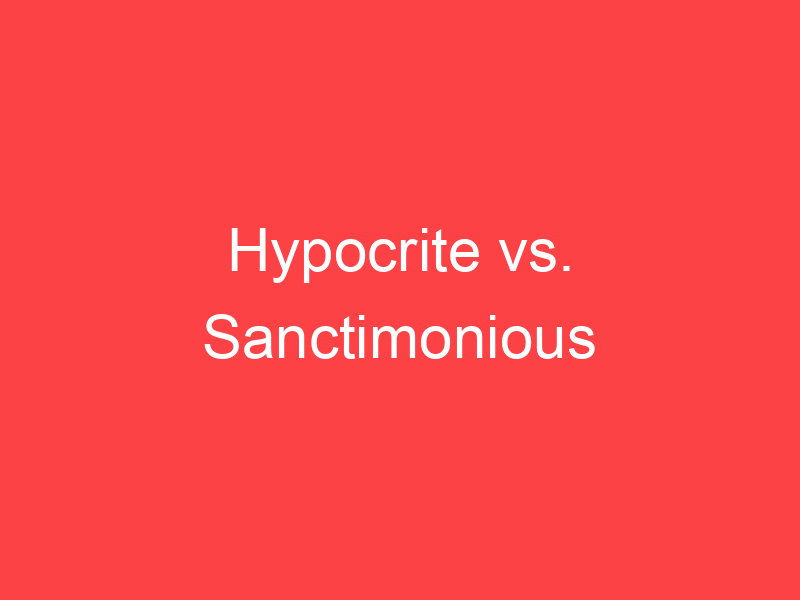-
Hypocrite
Hypocrisy is the contrivance of a false appearance of virtue or goodness, while concealing real character or inclinations, especially with respect to religious and moral beliefs; hence in a general sense, hypocrisy may involve dissimulation, pretense, or a sham. Hypocrisy is the practice of engaging in the same behavior or activity for which one criticizes another. In moral psychology, it is the failure to follow one’s own expressed moral rules and principles. According to British political philosopher David Runciman, “Other kinds of hypocritical deception include claims to knowledge that one lacks, claims to a consistency that one cannot sustain, claims to a loyalty that one does not possess, claims to an identity that one does not hold”. American political journalist Michael Gerson says that political hypocrisy is “the conscious use of a mask to fool the public and gain political benefit”.Hypocrisy has been a subject of folk wisdom and wisdom literature from the beginnings of human history. Increasingly, since the 1980s, it has also become central to studies in behavioral economics, cognitive science, cultural psychology, decision making, ethics, evolutionary psychology, moral psychology, political sociology, positive psychology, social psychology, and sociological social psychology.
-
Hypocrite (noun)
Someone who practices hypocrisy, who pretends to hold beliefs, or whose actions are not consistent with their claimed beliefs. from early 13th c.
-
Sanctimonious (adjective)
Making a show of being morally better than others, especially hypocritically pious.
-
Sanctimonious (adjective)
Holy, devout.

